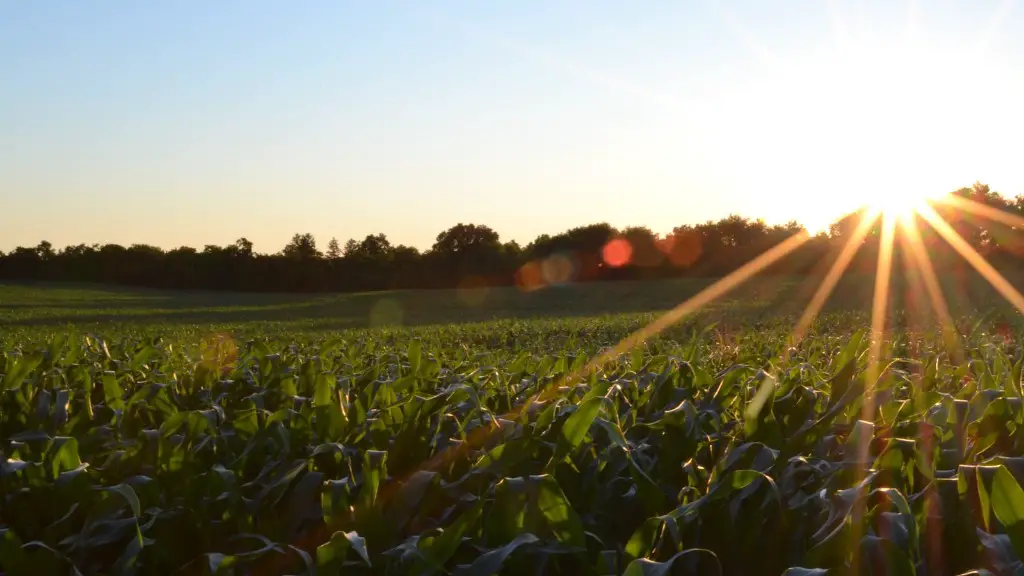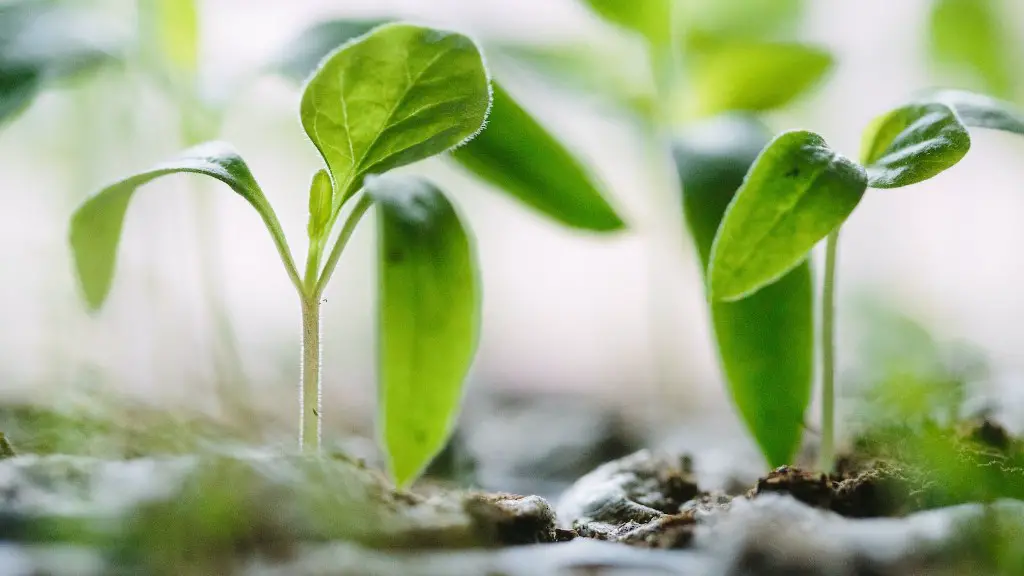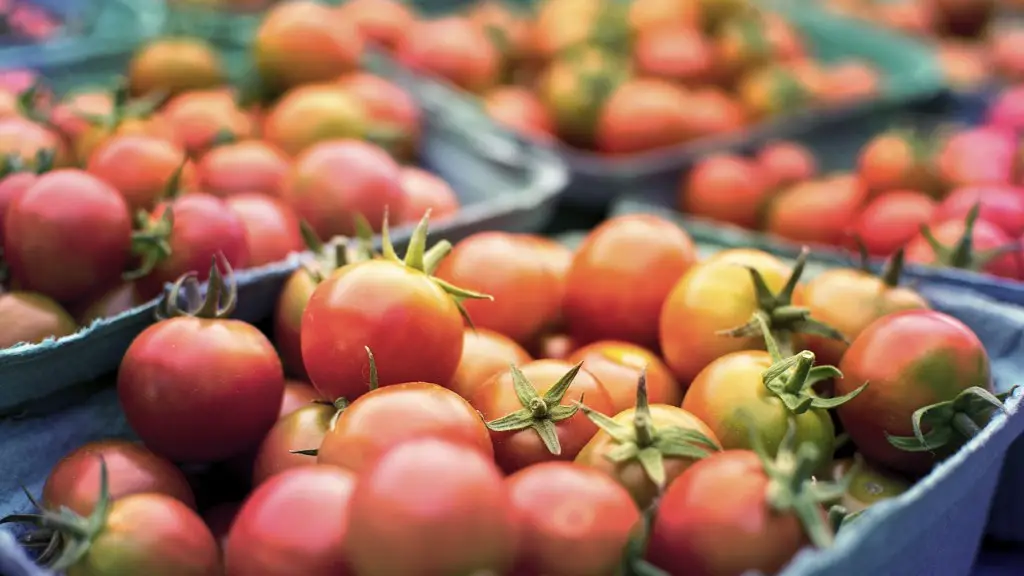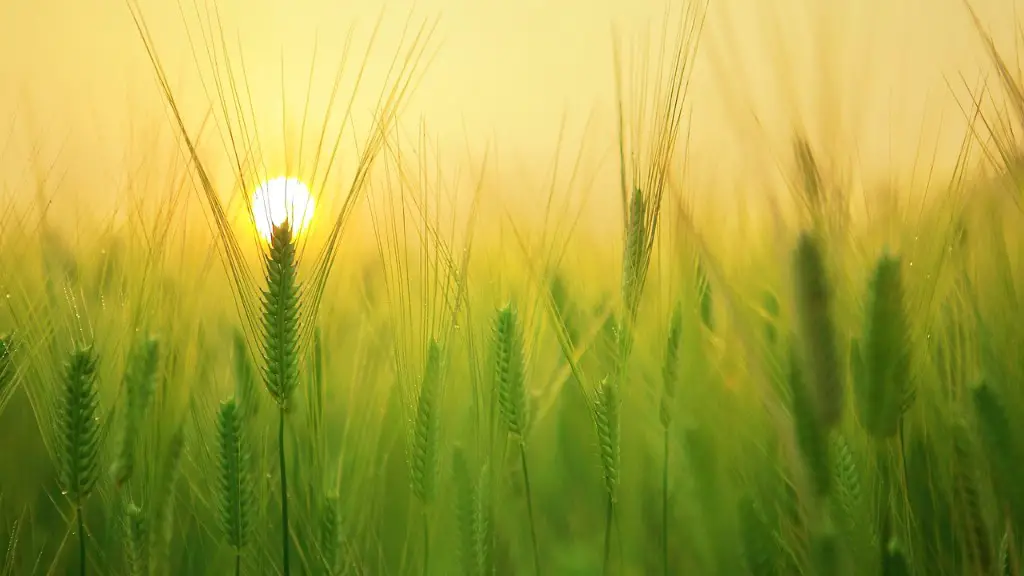Agriculture is considered a science because it relies on scientific principles to produce crops and livestock. Agricultural scientists use their knowledge of biology, chemistry, and physics to find new ways to improve crop yields and livestock health. They also work to develop sustainable farming practices that protect the environment.
Agriculture is considered a science because it involves the application of knowledge and skills to the growing and harvesting of plants and animals. Agriculture requires an understanding of the natural world and the ability to use this knowledge to improve the quality of the food we eat.
Why agriculture is defined as the science?
Agriculture is one of the most important aspects of human civilization. It is the art and science of cultivating the soil, growing crops and raising livestock. Agriculture includes the preparation of plant and animal products for people to use and their distribution to markets.
Agriculture has played a key role in the development of human civilization. It is one of the oldest human activities and has been a major source of food, fuel and fiber for people throughout history. Agriculture has also had a significant impact on the environment. It is a major source of greenhouse gases and has contributed to deforestation, soil erosion and water pollution.
Despite its importance, agriculture is a very risky business. It is susceptible to weather, pests and diseases. Agricultural production can also be affected by political and economic conditions. This makes it difficult for farmers to make a living and support their families.
There are many ways to improve the security of the agricultural sector. One is to diversify crops and livestock. This way, if one crop fails, farmers will still have others to fall back on. Another is to improve agricultural practices. This includes using more efficient irrigation systems, planting cover crops and using organic fertilizers.
Agriculture is an essential part of human civilization. It provides
The definition of agriculture is “the science or practice of farming, including cultivation of the soil for the growing of crops and the rearing of animals to provide food and other products”. As of 2018, 11% of US employment comes from agriculture and related industries, resulting in approximately 22 million US jobs. The agriculture industry is vital to the US economy and provides food and other products for both domestic and global consumption.
What kind of science is agricultural science
Agricultural Science is a broad program that exposes students to agriculture in terms of the sciences as well as the economic and social science disciplines that are integral to the industry Some aspects that students are exposed to include agricultural production, soil and water conservation, research, and business. Agricultural Science provides students with a well-rounded education that can be applied to a number of different careers within the agriculture industry.
Science-led agricultural practices are those that are based on a deep understanding of how ecosystems work and how they can be managed to produce food, fiber, and other products while maintaining and even improving ecosystem health. These practices include precision agriculture, biotechnology, new perennial crops, agroforestry, and integrated pest management. They help build soil health, protect biodiversity, and reduce agriculture’s GHG footprint.
Does agricultural science count as a science?
Agricultural science is the study of the science and technology underlying the principles and practices of agriculture. The field includes the study of crop science, animal science, soil science, and agronomy. Agricultural science is a broad field that encompass many different subfields.
The life sciences are the study of living organisms, including their structure, function, growth, origin, evolution, distribution, and taxonomy. The life sciences are divided into two major branches: the natural sciences, which study living organisms as they exist in nature; and the applied sciences, which use the knowledge of the life sciences to solve problems and develop new technologies.
The life sciences include the fields of botany, zoology, microbiology, ecology, cell biology, evolutionary biology, genetics, biochemistry, physiology, and immunology. The life sciences are also applied to the study of agriculture, horticulture, forestry, and public health.
Is agriculture a science and technology?
Agriculture is often high tech. Farmers and others use science and technology to collect data, analyze efficiency, monitor growth and quality, and more to save money and get better yields.
The agriculture major is not particularly hard. Definitely, it’s not as challenging as STEM and healthcare majors. But since it’s an interdisciplinary field, encompassing anything from biology, chemistry, economics to marketing, agriculture majors have to study very well in order to earn a bachelor’s degree.
Is Plant Science life science
Botany is a life science that deals with the study of plants. Botanists are concerned with a number of different topics, including discovering new plants, studying the biochemistry of plants, and researching how plants can be used for food production and medicine.
An agricultural scientist is a specialist in analyzing and researching farming methods and food production methods to enhance safety and crop yield. Agricultural scientists work on new and innovative ways to increase the quality of food grown and supplied. They may also conduct research on foodborne diseases and pathogens, and work to develop new ways to control these diseases.
Which is the hardest science?
It’s no surprise that a Chemistry degree is fiercely challenging – Chemistry is famous for being one of the hardest subjects ever. Just one topic in Chemistry (for example, organic chemistry) is incredibly complex.
Organic chemistry is notorious for being one of the most difficult college courses out there. And it’s no surprise – the material is incredibly dense, and requires a lot of memorization and critical thinking to master. If you’re considering taking this course, be prepared to put in a lot of hard work. But, it’ll be worth it in the end!
Do you need science for agriculture
Studying agriculture can open up a wide range of career opportunities, both in traditional farming and in other sectors such as agribusiness, food production, environmental conservation, and policymaking. With the right skills and knowledge, graduates of agriculture courses can go on to work in a variety of roles, both in the public and private sector.
Plants are an incredibly versatile tool that can be used to answer many different questions in biology. Their diverse range of traits makes them ideal for studying topics like development, metabolism, gene regulation, symbiosis, and chromosome structure. By understanding how plants work, we can gain insights into some of the most fundamental processes that occur in all living organisms.
What is considered a life science?
The life sciences are a branch of science that deals with the study of living organisms. This includes the study of their structure, function, growth, origins, and evolution. The life sciences encompass a wide range of topics, from the microscopic world of cells and genes to the complex behavior of animals and ecosystems.
Plants provide food and oxygen for the entire biosphere, literally supporting the existence of life on Earth. They also provide shelter, fiber, fuel, and medicinal compounds that profoundly affect mankind. Plants are essential to life on Earth and we are indebted to them for their many gifts.
What is considered a scientist
A scientist is someone who systematically gathers and uses research and evidence to make hypotheses and test them, to gain and share understanding and knowledge. A scientist can be further defined by: how they go about this, for instance by use of statistics (statisticians) or data (data scientists).
Psychology is one of the most popular college majors, and it is frequently thought of as an easy major. However, psychology majors can expect to do a fair amount of statistical analysis.
Final Words
There are a few reasons why agriculture is considered a science. One reason is that agriculture relies on a number of natural sciences, such as biology, chemistry, and meteorology. Without a scientific understanding of these disciplines, it would be difficult to effectively produce crops and livestock. Another reason why agriculture is considered a science is that it employs a great deal of technology. From irrigation systems to genetically modified seeds, agricultural production relies heavily on technology to be successful. Finally, agriculture is a data-driven industry. Farmers are constantly collecting data on things like crop yields, soil conditions, and weather patterns. This data is then used to make decisions about seed selection, planting schedules, and irrigation strategies. All of this together shows that agriculture is a complex and dynamic field that relies on scientific knowledge and technology to be successful.
Similar to other sciences, agriculture is systematic and depends on empirical evidence. Good agricultural practices consider the geographical and local conditions to ensure that the right crops are grown in the right place. The science of agriculture has come a long way since the early days of trial and error, and now there is a greater understanding of plant genetics, soils, and pests. This has helped to increase yields and produce better quality crops.





